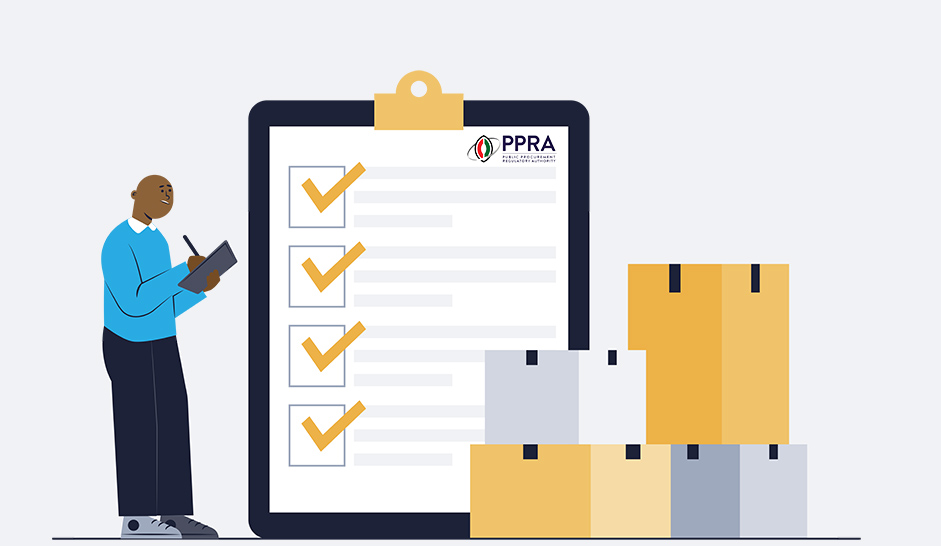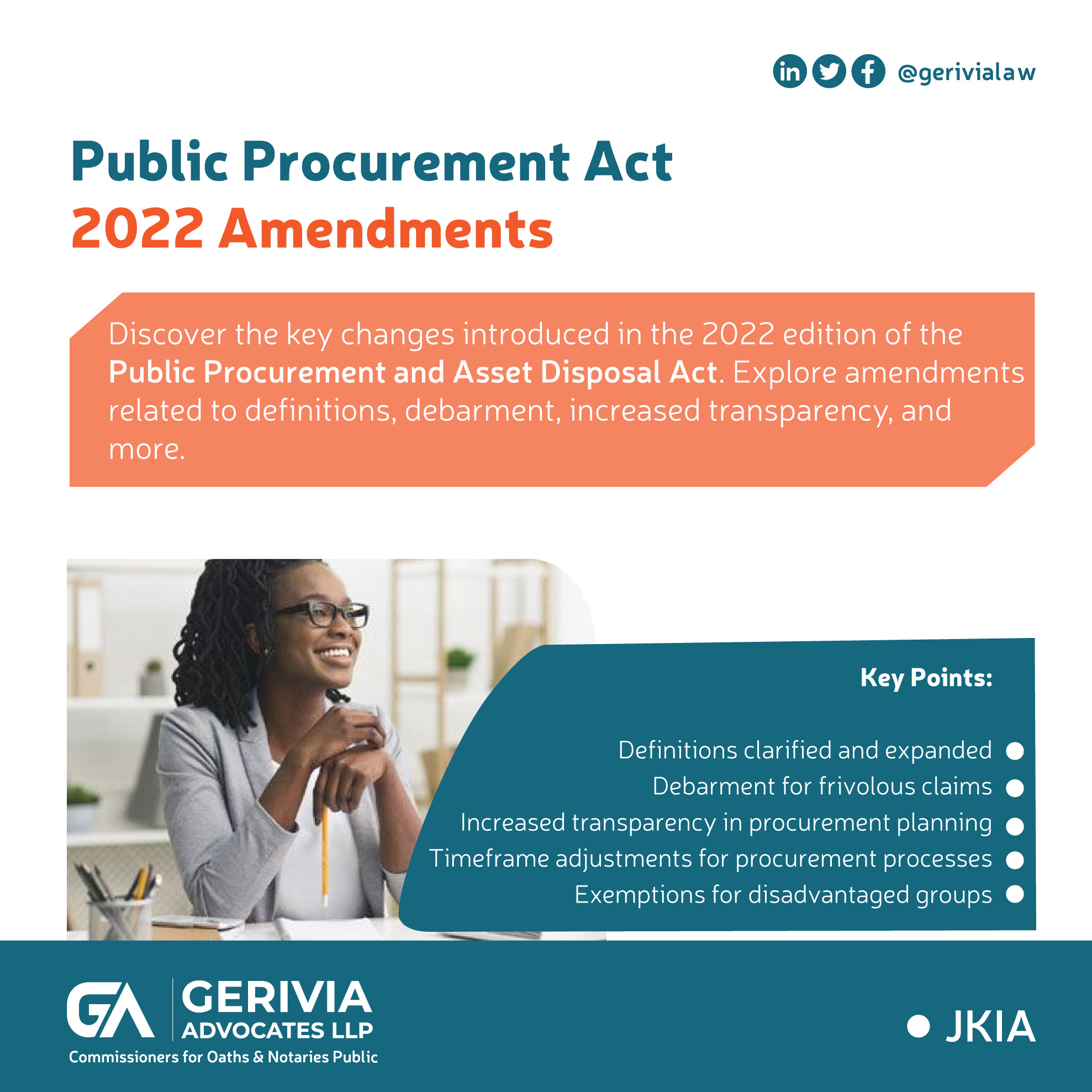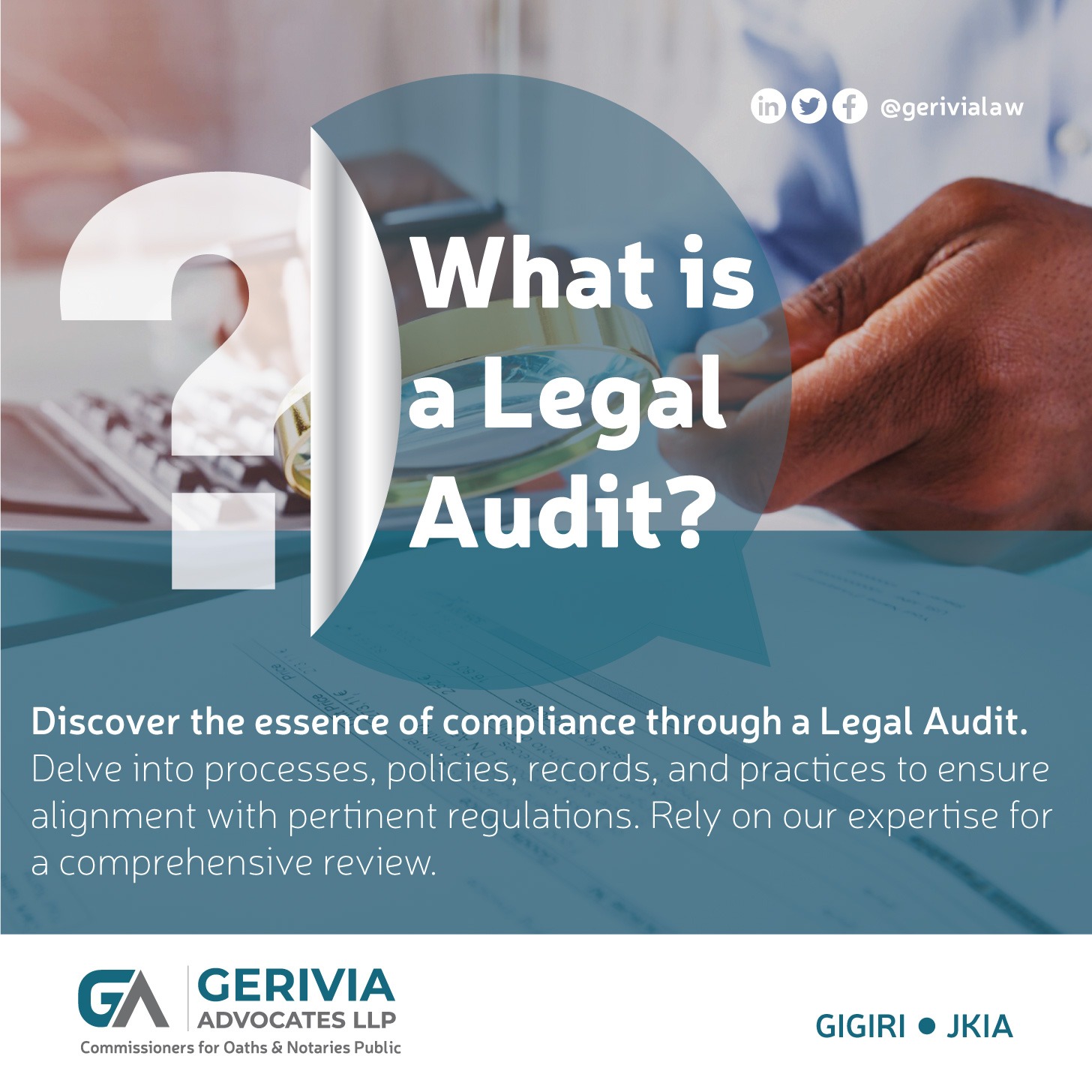In June 2022, the Public Procurement Regulatory Authority (PPRA) issued Guidelines for Registration and Licensing of Procuring or Asset Disposal Agents (hereinafter, “the Guidelines”) for observance by the PPRA, procuring entities and procuring and asset disposal agents (hereinafter, “agents”). The Guidelines are available on the PPRA website here: https://ppra.go.ke/guielines-procuring-disposal/.
The Guidelines operationalise the provisions of section 51 of the Public Procurement and Asset Disposal Act (hereinafter “the PPADA”) and Regulation 38 of the Public Procurement and Asset Disposal Regulations, 2020 (hereinafter “the PPADR”).
Section 51 of the PPADA allows procuring entities to appoint agents where the procuring entity demonstrates lack of internal capacity to establish a procuring unit, provides evidence of such inability and also demonstrates inability to use the services of other state organs or entities.
Section 52 of the Act provides for circumstances under which one procuring entity may obtain the assistance of another procuring entity in procurement and asset disposal matters. The assistance can take the form of having another procuring entity conduct a specific procurement process or certain aspects of the procurement on behalf of the entity that is seeking assistance.
The assistance of a different procuring entity could also take the form of using the pre-qualification list of a different procuring entity as provided for in section 56 of the PPADA. The request to use another entity’s list must be done in writing and must meet the basic requirements provided in section 56 such as ensuring the list is valid and that it was developed through a competitive process.
The idea is to ensure that the use of assistance of a different procuring entity in the procurement and asset disposal process is not used to circumvent the procurement values such as competitiveness and transparency.
Key Provisions of the Guidelines
Role of various entities and the agents
The Guidelines provide the various roles that are to be carried out by the Authority (PPRA), the procuring entity and the role of the procuring and asset disposal agent. While the Guidelines provide very detailed provisions on the role of the first two agencies, the role of the agent is provided in a rather generic manner.
In as much as stating that the agent should comply with the Constitution and the Act is likely to cover what is expected of the agent, a little detail on the roles of the agent would be helpful. Perhaps the detail to the role of the agent can be added as we go along.
Some of the other roles that could be added for the agent could include aspects such as declarations relating to conflict of interest, reporting requirements and the duty to comply with contracts and terms of reference etc.
The Guidelines also provide for the registration requirements and conditions for registration for the agents. Besides being registered and issued with a certificate of registration, the agent is also required to obtain an annual practicing licence.
Practice categories
Clause 6.7 of the Guidelines provides for practice categories. An agent is allowed to apply for any of the categories they are qualified for, even if it is all of them, if they pay the prescribed fee of KES. 50, 000 per category. The practice categories listed in Clause 6.7 (2) are:
(a) Procurement of: goods, non-consultancy services, consultancy services and works;
(b) Warehousing, Inventory and Asset Management;
(c) Logistics Management;
(d) Contract Management;
(e) Assets Disposal;
(f) Procurement Audit and Compliance Review; and
(g) Procurement Transaction Advisory.
Register of Agents
PPRA is supposed to maintain a register of all registered agents which contains important information such as their name, dates of issue and expiry of the licences and other details.
Agents can be removed from the register under the circumstances listed in Clause 6.10 which include in the event of death of the agent, being adjudged bankrupt, a request for removal from the register or where the person is convicted for an offence under the PPADA.
Clause 6.10 (c) also contains a provision for removal in the event that a registered person has “been found by the Authority to be guilty of an act or omission contrary to the public interest or gross professional misconduct”. The former part of this clause that allows for removal for an act or omission contrary to public interest if quite wide, noting courts have often said that public interest is an unruly horse and when you go astride it, you do not know where it might take you.
Also, we have seen incidents of government agencies citing public interest in support of their actions when the actions involved are in breach of the law. Rather than use this omnibus option of public interest, it may be more practical to define the circumstances under this section to breaches of the law or professional misconduct which actions would be clearly defined under existing laws or codes of conduct.
The Guideline under Clause 6.12 provide for recourse for an agent who is aggrieved by the decision of the PPRA to refuse to register the agent, remove their name from the register, suspend their registration or refuse to restore the name to the register. Such an agent may institute judicial review proceedings within 21 days of receiving such decision.
Under Clause 6.10 (4), the Guidelines provide that the PPRA shall not cancel the registration of a member unless it has afforded the member an opportunity to show cause why their registration should not be cancelled.
Clause 7.7. of the Guidelines provides for professional misconduct and includes a detailed list of what constitutes such misconduct. One of the clauses that requires clarity is Clause 7.7 (f) which prohibits solicitation of clients. The clause reads as follows:
Restrictions on soliciting for work by agents
The Guidelines contain clauses that seem to restrict how the agents secure clients. The clauses are reproduced below:
Clause 7.7 of the Guidelines state that an agent is guilty of professional misconduct if such agent:
(…)
(f) solicits clients or professional work or advertises professional attainments or services.
Annex 2 of the Guidelines which is the Registered and Licensed Procuring or Asset Disposal Agents Code of Professional Conduct, clause 4 provides further details on solicitation. The clause states:
A registered and licensed procuring or asset disposal agent shall not solicit work or instructions, and shall ensure that the form, content and method of publication and distribution of any advertisement or announcement published, issued or authorized by him are in a manner approved by the Authority.
The two sub-clauses above imply that agents are not allowed to request for work and that any form of advertising employed by agents to publicise their services should be approved by the PPRA.
More clarity is required on this point so that agents are clear on the acceptable activities on matters of advertising and marketing their work.
Foreign procuring or asset disposal agents
The Guidelines at Clause 7.11 give the PPRA discretion to admit foreign procuring or asset disposal agents after payment of the prescribed fees.
In terms of competition between local and foreign procuring and asset disposal agents, the provisions of Clause 4 (h) on the role of procuring agents which incorporate issues of preference in terms of selecting the agents are relevant. Clause 4 (h) and (i) state that a procuring entity shall:
(h) Give preferential treatment to local agents before appointing international procuring agents as provided for in the Act and Regulations;
(i) Give preference to agents in the region where the procuring entity is situated or in the region where the services are to be performed as provided for in the Act and Regulations;
Article 227 of the Constitution and various provisions of the PPADA such as section 86 (2) and Part XII contain detailed provisions on preference for local and citizen company. The provisions above on preferential treatment to local agents are laudable as they give effect to the letter and spirit of the Constitution and the Act on matters of preference.
Enforcement and review of the Guidelines
The penultimate clause of the Guidelines contains provisions on enforcement. The PPRA is given disciplinary powers to take certain measures against registered agents. The disciplinary measures include cancelation or suspension of the registration certificate or a reprimand.
The final clause provides for review of the Guidelines from time to time. This being the first version of the Guidelines that operationalise the provisions of section 51 of the Act, we expect several reviews of the document to bring it to terms with the realities.
Annexes
Finally, the Guidelines contain nine (9) Annexes ranging from a code of professional conduct and the application form for registration and licencing as a procuring or disposal agent and the application form for practising licenses. The Annexes also include formats for the certificates of registration and the annual practicing certificate.
Conclusion
The guidelines are sufficiently detailed and are a good starting point on how the process of registration of agents is supposed to work.
Certain aspects of the Guidelines will need to be clarified and developed further once the application process commences. For instance, the registration form for agents is not very clear regarding application for individuals or firms. How should a firm with more than one eligible procuring agent go about the application process?
Also, the procedure to be followed by persons who feel aggrieved by the decision of the PPRA need to be streamlined and details provided on how the process of seeking for an internal review of the decision by PPRA before filing for judicial review will work, including timelines within which they should expect to hear from PPRA.
Resolving most of the grievances at the PPRA level will reduce the number of cases filed before the High Court on judicial review thus promoting the spirit of Article 159 (2) of the Constitution of utilising alternative forms of dispute resolution.
Finally, the Guidelines could benefit from further proof reading and editing to correct typos and formatting errors and make it easier to read and understand the Guidelines.




